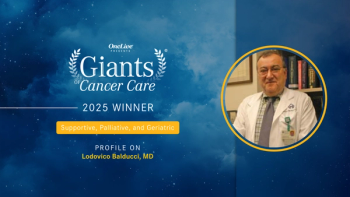
Utilizing TKIs in Advanced Medullary Thyroid Cancer
For High-Definition, Click
Within a short timeframe, two targeted therapies have gained approval as treatments for patients with advanced medullary thyroid cancer (MTC) who are no longer candidates for curative surgery. Knowing when to administer these therapies requires a thorough understanding of the natural history of the disease, believes Marcia S. Brose, MD, PhD.
In general, following presentation, 50% to 60% of patients will pass away within 3 years. However, the remaining 40% can live for 10 years of longer, Brose notes. This variation places importance on accurately detecting the rate of disease growth, using cross sectional imaging along with calcitonin and CEA doubling times. Patients with a CEA or calcitonin level that doubles in less than 6 months should receive immediate therapy whereas those with a doubling time over 2 years should be observed, Brose states.
A randomized phase III study that compared vandetanib to placebo in patients with advanced MTC demonstrated a marked improvement in progression-free survival (PFS). In this study, the median PFS with vandetanib was 30.5 months compared with 19.3 months for placebo. Furthermore, the phase III EXAM study demonstrated an improvement in PFS with cabozantinib. In this trial, the median PFS with cabozantinib was 11.2 versus 4.0 months for placebo.
Both vandetanib and cabozantinib have gained approval for the treatment of patients with MTC, notes Francis P. Worden, MD. At this point, there is not data on sequencing, leaving the optimal treatment selection as a topic for debate. For patients with bulky disease and bone involvement, Worden prefers cabozantinib upfront followed by vandetanib. However, in general, Worden feels that the side effects are more tolerable with vandetanib versus cabozantinib, making it his standard frontline choice.
Vandetanib has been associated with unique skin toxicity that occurs on the upper back, neck, and face, Manisha H. Shah, MD, notes. Other types of skin toxicity can occur as an indirect result of targeting EGFR. Additionally, patients should be advised to use sunscreen to avoid photosensitivity, Shah notes.


































